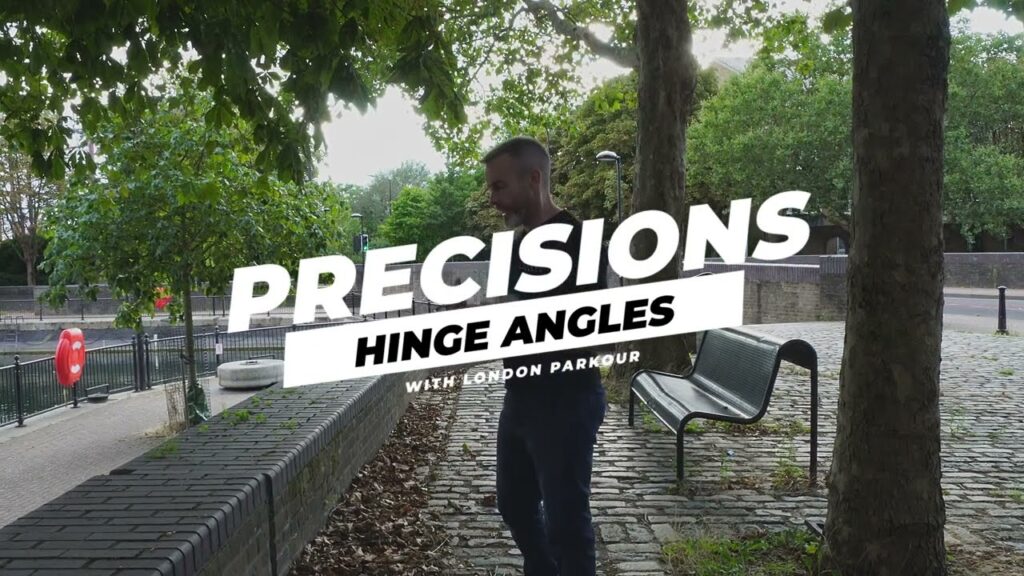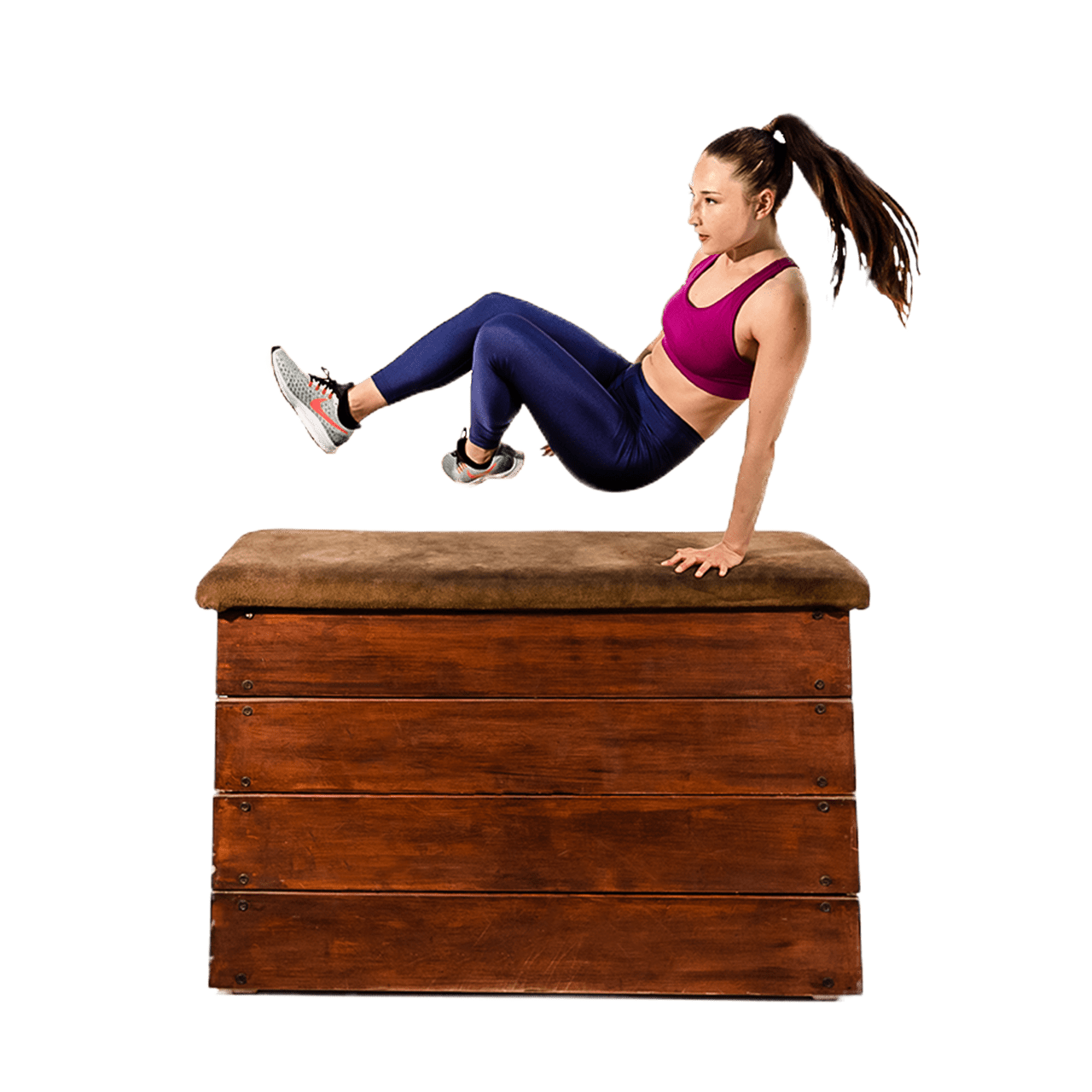When it comes to mastering landing techniques in jumping sports, understanding hinge angles is crucial. This knowledge can make a significant difference in your performance, safety, and overall effectiveness of your jumps. The core idea revolves around achieving optimal balance and control during landing, which hinges on aligning the angles of your knees and hips when you touch the ground. The goal is to create a stable position, allowing you to harness power effectively and reduce the risk of injury.
To achieve the perfect landing, the angles of your knees and hips should ideally match. If one angle is noticeably different from the other, it may indicate strength imbalances in your body, which can affect your performance. Specifically, during vertical jumps, it’s common for the hip angle to be more pronounced. However, if you're jumping straight ahead or laterally, strive for a similar angle in both joints. Too much hip bending without sufficient knee flexion can compromise your balance and control, showing a lack of mobility in your legs. Conversely, relying too heavily on bending your knees while keeping your hips overly rigid can lead to a low, unstable position that may hinder your movement efficiency.
In summary, focusing on matching your knee and hip angles during landings can significantly enhance your jumping technique, promoting better balance and control. While there are exceptions based on specific jumps and obstacles, maintaining this principle will generally lead to improved performance. Keep practicing your landing mechanics and listen to your body to develop a better feel for the optimal posture that works for you.
- Aim for matching knee and hip angles during landings to enhance balance and control.
- Avoid excessive bending in either the hip or knee to maintain stability.
- Remember that the ideal position may vary depending on specific jump dynamics.
0.44all right let's talk about hinge3.48angles so again the everything I'm6saying you know there's some people will8.32agree some people won't and you know it10.44all depends on who you are and what11.799you're doing and especially with this it14.679depends on what the jump is where you're18.039going what your trajectory is so when21.68you land sort of the optimal position is26.16the same angle of your knee and hip so30.039so let's talk about so when you34.16land the knee angle and the hip angle is37.92roughly the same if you land with one41.68dominant than the other it shows a44.76couple of things it shows that you have46.48dominance in one part of the body and49.039weakness in the other sometimes again52.079depends on the position if you if you're54.239going upwards to a jump you're going to57.079find that you're going to bend the hip a58.76lot more than the the knee but on a62.359straight you know level to Lev jump you65.239roughly want to be the same hip and knee68.2now if you do too much hip and not70.64enough knee so that's like that again it75.88looks horrible it's not a good position78.799you don't have balance you don't have80.36control and it shows that your legs tend85.24to be from what I see weaker and you're88.72not comfortable bending ing your knees90.68so you don't have Mobility as much so93.28you're kind of focusing more on the hip96.32similarly the other way is not enough99.04hip and too much knee so this is where101.479people don't push enough and it's sort104.32of like105.24a this position so it of like very very109.6low um and yeah that's not as great115either you want to have a bit of both so118.399focus on hip P knee being roughly the121.96same it's also going to help balance so124.68you know You' Contracting hard you're126.6going to be working hard and it's sort128.599of like a chair position so if you were131.319sitting down in a chair it's there but135.879rocking forwards so you're on the ball137.599of the foot but it's the same position140.16and yeah you're pretty much working as142.599hard as you can as I say the caveat is146.36all positions are still possible if148.2you're going up to a high obstacle so150.36you're not going straight you need to152.12get that Mobility if you're going154.08downwards and you're just using gravity156.64then you don't need to bend that much um159it all depends but the ideal position is163.12same hip same knee of the same angle
1 00:00:00,000 --> 00:00:05,000 all right let's talk about hinge 2 00:00:03,000 --> 00:00:07,000 angles so again the everything I'm 3 00:00:06,000 --> 00:00:10,000 saying you know there's some people will 4 00:00:08,000 --> 00:00:11,000 agree some people won't and you know it 5 00:00:10,000 --> 00:00:14,000 all depends on who you are and what 6 00:00:11,000 --> 00:00:17,000 you're doing and especially with this it 7 00:00:14,000 --> 00:00:21,000 depends on what the jump is where you're 8 00:00:18,000 --> 00:00:26,000 going what your trajectory is so when 9 00:00:21,000 --> 00:00:29,000 you land sort of the optimal position is 10 00:00:26,000 --> 00:00:34,000 the same angle of your knee and hip so 11 00:00:30,000 --> 00:00:37,000 so let's talk about so when you 12 00:00:34,000 --> 00:00:41,000 land the knee angle and the hip angle is 13 00:00:37,000 --> 00:00:43,000 roughly the same if you land with one 14 00:00:41,000 --> 00:00:45,000 dominant than the other it shows a 15 00:00:44,000 --> 00:00:48,000 couple of things it shows that you have 16 00:00:46,000 --> 00:00:51,000 dominance in one part of the body and 17 00:00:49,000 --> 00:00:54,000 weakness in the other sometimes again 18 00:00:52,000 --> 00:00:57,000 depends on the position if you if you're 19 00:00:54,000 --> 00:00:58,000 going upwards to a jump you're going to 20 00:00:57,000 --> 00:01:02,000 find that you're going to bend the hip a 21 00:00:58,000 --> 00:01:04,000 lot more than the the knee but on a 22 00:00:62,000 --> 00:01:07,000 straight you know level to Lev jump you 23 00:00:65,000 --> 00:01:10,000 roughly want to be the same hip and knee 24 00:00:68,000 --> 00:01:15,000 now if you do too much hip and not 25 00:00:70,000 --> 00:01:18,000 enough knee so that's like that again it 26 00:00:75,000 --> 00:01:19,000 looks horrible it's not a good position 27 00:00:78,000 --> 00:01:24,000 you don't have balance you don't have 28 00:00:80,000 --> 00:01:28,000 control and it shows that your legs tend 29 00:00:85,000 --> 00:01:30,000 to be from what I see weaker and you're 30 00:00:88,000 --> 00:01:32,000 not comfortable bending ing your knees 31 00:00:90,000 --> 00:01:35,000 so you don't have Mobility as much so 32 00:00:93,000 --> 00:01:38,000 you're kind of focusing more on the hip 33 00:00:96,000 --> 00:01:41,000 similarly the other way is not enough 34 00:00:99,000 --> 00:01:44,000 hip and too much knee so this is where 35 00:00:101,000 --> 00:01:44,000 people don't push enough and it's sort 36 00:00:104,000 --> 00:01:49,000 of like 37 00:00:105,000 --> 00:01:54,000 a this position so it of like very very 38 00:00:109,000 --> 00:01:57,000 low um and yeah that's not as great 39 00:00:115,000 --> 00:01:61,000 either you want to have a bit of both so 40 00:00:118,000 --> 00:01:64,000 focus on hip P knee being roughly the 41 00:00:121,000 --> 00:01:65,000 same it's also going to help balance so 42 00:00:124,000 --> 00:01:67,000 you know You' Contracting hard you're 43 00:00:126,000 --> 00:01:70,000 going to be working hard and it's sort 44 00:00:128,000 --> 00:01:75,000 of like a chair position so if you were 45 00:00:131,000 --> 00:01:77,000 sitting down in a chair it's there but 46 00:00:135,000 --> 00:01:79,000 rocking forwards so you're on the ball 47 00:00:137,000 --> 00:01:82,000 of the foot but it's the same position 48 00:00:140,000 --> 00:01:86,000 and yeah you're pretty much working as 49 00:00:142,000 --> 00:01:87,000 hard as you can as I say the caveat is 50 00:00:146,000 --> 00:01:90,000 all positions are still possible if 51 00:00:148,000 --> 00:01:91,000 you're going up to a high obstacle so 52 00:00:150,000 --> 00:01:93,000 you're not going straight you need to 53 00:00:152,000 --> 00:01:96,000 get that Mobility if you're going 54 00:00:154,000 --> 00:01:98,000 downwards and you're just using gravity 55 00:00:156,000 --> 00:01:102,000 then you don't need to bend that much um 56 00:00:159,000 --> 00:01:108,000 it all depends but the ideal position is 57 00:00:163,000 --> 00:01:108,000 same hip same knee of the same angle

